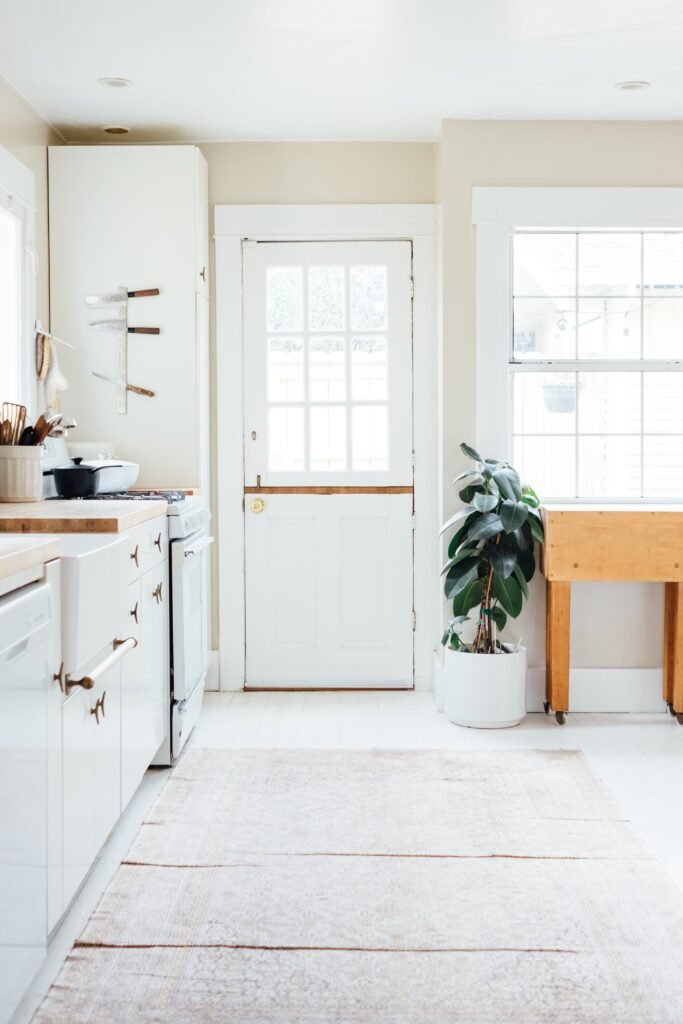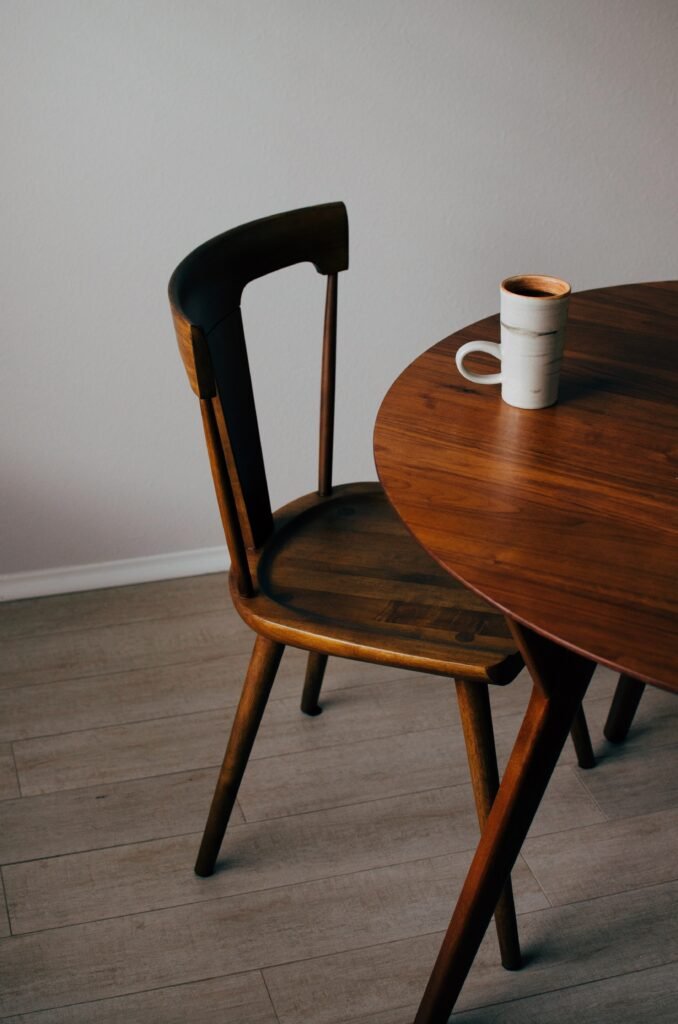Are you thinking about buying a new home? Congratulations on this exciting milestone! But before you dive into the world of real estate, it’s essential to have a clear budget in place. In this step-by-step guide, we will walk you through the process of creating a budget for your home purchase. From determining your financial capabilities to estimating your monthly expenses, we’ll provide you with all the necessary tools and tips to help you make an informed decision. So, let’s get started on this journey towards finding your dream home without breaking the bank!

Understanding the Basics of Home Buying
Knowing why budgeting for a home is crucial
When it comes to buying a home, budgeting is crucial for several reasons. Firstly, having a clear budget will help you determine the maximum amount you can afford to spend on a property. It will also allow you to set realistic goals and identify the areas where you may need to make compromises. Additionally, budgeting for a home purchase helps ensure that you are financially prepared for the costs involved in the process, from the initial down payment to ongoing expenses such as mortgage payments and home maintenance.
Types of homes: choices and cost implications
Before diving into the homebuying process, it is important to familiarize yourself with the different types of homes available in the market. From detached houses to townhouses, condos, and apartments, each type comes with its own set of pros and cons. It is essential to consider not only the cost implications but also your lifestyle and future plans when choosing the type of home that suits your needs. Budgeting for a specific type of home will help you make an informed decision and avoid any potential financial surprises down the line.
Basic costs involved in home purchase
When creating a budget for your home purchase, it is essential to consider the basic costs involved in the process. Apart from the purchase price of the property, there are a few other expenses to keep in mind. These may include legal fees, home inspection costs, potential repairs or renovations, closing costs, and moving and relocation expenses. By understanding these basic costs upfront and budgeting for them, you can ensure that you are financially prepared for the entire homebuying journey.
Determining Your Financial Capacity
Assessing your income
One of the fundamental steps in determining your financial capacity for a home purchase is assessing your income. Take into account your regular income sources such as your salary or any other steady sources, like rental income or investments. It is important to have a clear understanding of your income streams to accurately assess how much you can comfortably allocate towards mortgage payments and other housing-related expenses.
Evaluating your expenses
To get a comprehensive picture of your financial capacity, it is crucial to evaluate your expenses thoroughly. This includes both your fixed expenses, such as utility bills, insurance premiums, and loan repayments, as well as your variable expenses, like groceries, entertainment, and transportation. By categorizing your expenses and tracking them over a period of time, you can identify areas where you can potentially cut back and allocate more towards your home purchasing budget.
Understanding your credit-scoring position
Your credit score plays a significant role in determining your eligibility for a mortgage and the interest rate you will be offered. It is crucial to understand your credit-scoring position before embarking on a home purchase. Obtain a copy of your credit report and review it carefully for any errors or discrepancies. Taking steps to improve your credit score, if necessary, can help you secure more favorable mortgage terms and potentially save you money in the long run.
Identifying your down payment potential
The down payment is a significant upfront cost when buying a home. It is important to assess your down payment potential to determine the maximum home price you can afford. Aim to save at least 20% of the home’s purchase price as a down payment, as this will not only help you avoid private mortgage insurance but also improve your chances of securing a mortgage with better terms. Assess your savings and explore potential sources of funds, such as liquidating investments or receiving financial assistance from family members, to determine the amount you can allocate towards your down payment.

Setting Realistic Home Purchase Goals
Deciding on a desired location
Choosing the right location for your future home is crucial and should be based on a variety of factors, including proximity to work, amenities, schools, and transportation. It is essential to consider your lifestyle and future plans when deciding on a location. Keep in mind that the cost of homes can vary significantly depending on the location, so factor in the cost implications when setting your budget.
Choosing a home size and type
Consider the size and type of home that will meet your needs both currently and in the future. If you are planning to start a family or require additional space for hobbies or work, you may need to budget for a larger home. On the other hand, if you are looking to downsize or prefer a low-maintenance lifestyle, a smaller home or a condo might be more suitable. Take into account your lifestyle, preferences, and long-term goals when setting your home purchase goals.
Identifying key home features and amenities
Make a list of the key features and amenities that are important to you in a home. These can include the number of bedrooms and bathrooms, the presence of a backyard or garage, or specific amenities such as a swimming pool or a gym. By identifying your must-haves and nice-to-haves, you can prioritize your budget accordingly and ensure that you find a home that meets your needs and preferences.
Creating a Preliminary Home Purchase Budget
Determining the maximum home price you can afford
Based on your financial capacity and desired down payment, you can determine the maximum home price you can afford. Keep in mind that it is essential to leave room in your budget for additional expenses such as closing costs and potential repairs or renovations. By setting a realistic maximum home price, you can ensure that you find a property within your budget constraints.
Estimating mortgage payments
Estimating your monthly mortgage payments is a crucial step in creating a home purchase budget. Use online mortgage calculators or consult a mortgage professional to get an idea of the potential monthly payments based on the home price, down payment, and interest rate. This will help you assess whether the estimated mortgage payments fit comfortably within your monthly budget.
Factoring in home insurance and property taxes
In addition to mortgage payments, it is important to factor in ongoing expenses such as home insurance and property taxes when creating a home purchase budget. These costs can vary depending on factors such as the location of the property and the value of the home. Research the average insurance premiums and property tax rates in your desired area to get an estimate and ensure that you include these expenses in your budget.

Identifying Potential Extra Costs
Costs for home inspection
Getting a professional home inspection is an important step in the homebuying process to identify any potential issues or repairs needed. Budget for the cost of a home inspection, as it typically ranges from a few hundred to a few thousand pounds depending on the size and complexity of the property.
Costs of potential repairs and renovations
After a home inspection, there may be repairs or renovations required to bring the property up to your standards. Budget for these potential costs by setting aside a contingency fund. It is advisable to get quotes from contractors or professionals to estimate the cost of any necessary repairs or desired renovations before finalizing your budget.
Potential closing costs
Closing costs are fees associated with the finalization of the home purchase and typically range from 1% to 3% of the purchase price. These costs may include appraisal fees, legal fees, title search fees, and mortgage application fees. It is important to budget for these additional expenses to ensure that you have enough funds to cover them at the time of closing.
Moving and relocation costs
Don’t forget to budget for the costs associated with moving and relocating to your new home. This can include hiring professional movers, renting a truck, buying packing supplies, and potentially even temporary accommodation if needed. Estimate these costs based on your specific circumstances to ensure that they are included in your overall home purchase budget.
Saving for the Down Payment
Determining the amount to save
To reach your desired down payment amount, you need to determine how much you need to save. Consider the percentage of the home price you plan to put down as a down payment and calculate the corresponding amount. Setting a specific savings goal will help you stay motivated and track your progress throughout the saving process.
Choosing saving strategies
There are several saving strategies you can employ to help you reach your down payment goal faster. Consider automating your savings by setting up regular transfers from your paycheck to a dedicated savings account. Explore options such as a Help to Buy ISA or a Lifetime ISA, which provide government bonuses for first-time homebuyers. Additionally, cutting back on unnecessary expenses and finding ways to boost your income can also accelerate your savings.
Managing potential financial setbacks
While saving for a down payment, it is essential to prepare for potential financial setbacks that may temporarily slow down your progress. Unexpected expenses or changes in income can occur, so it is important to have an emergency fund in place to cover any unforeseen costs. By proactively managing potential setbacks, you can stay on track with your savings goals and maintain financial stability throughout the homebuying process.
Planning for Mortgage Repayments
Understanding mortgage rates and terms
When it comes to mortgage repayments, it is essential to understand the different mortgage rates and terms available. Mortgage rates will directly impact the amount of interest you’ll pay over the life of the loan, so it’s worth shopping around for the best rate. Additionally, consider the term of the mortgage, whether it’s a 15-year or 30-year loan, as this will affect your monthly payments. Carefully review and compare different mortgage options to choose the one that best suits your financial goals and budget.
Evaluating different mortgage options
There are various types of mortgages available, each with its own advantages and considerations. From fixed-rate mortgages to adjustable-rate mortgages, government-insured loans, and interest-only mortgages, it is important to evaluate the different options and select the one that aligns with your financial situation and long-term goals. Consult with a mortgage professional to understand the nuances of each mortgage type and determine which option is most suitable for you.
Planning for unexpected changes in income or interest rates
When planning for mortgage repayments, it is crucial to consider the potential impact of unexpected changes in income or interest rates. Job loss or a reduction in income can significantly affect your ability to make monthly mortgage payments. Similarly, fluctuations in interest rates can lead to adjustments in your monthly payments. To mitigate the impact of these changes, it is advisable to have a contingency plan in place, such as an emergency fund, to ensure you can continue to meet your mortgage obligations even during turbulent times.
Incorporating Long-term Costs
Estimating the cost of home maintenance
Owning a home comes with ongoing maintenance costs that need to be considered in your budget. Estimate the cost of routine maintenance tasks such as landscaping, HVAC system servicing, and general upkeep. It is also wise to allocate funds for unexpected repairs that may arise over time. By factoring in these long-term maintenance costs, you can ensure that you are financially prepared to maintain your home properly.
Calculating property taxes
Property taxes are an ongoing expense that needs to be accounted for in your budget. Research the property tax rates in your desired area and estimate the annual tax amount based on the purchase price of the property. Property tax rates can vary significantly, so it is important to have an accurate estimation of this cost to include it in your long-term budget.
Planning for possible home improvements
Consider any potential home improvements or renovations you may want to undertake in the future. Whether it’s upgrading the kitchen, adding an extension, or enhancing the landscaping, budgeting for these improvements will help ensure that you have funds set aside for future projects. By incorporating these potential costs into your home purchase budget, you can plan and save accordingly.
Implementing Your Home Purchase Budget Plan
Maintaining financial discipline
Implementing and maintaining financial discipline is key to successfully executing your home purchase budget plan. Stick to your budget by controlling your spending habits and resisting the temptation to overspend. Regularly review your budget and ensure that you are staying on track towards your savings goals. By being disciplined and mindful of your spending, you’ll be able to achieve your home purchase goals more effectively.
Regularly reviewing and updating your budget
Life circumstances and financial goals may change over time, so it is important to regularly review and update your home purchase budget. This can involve reassessing your income and expenses, modifying your savings strategies, or adjusting your home purchasing goals. Regularly reviewing and updating your budget will help ensure that it remains aligned with your current financial situation and aspirations.
Taking steps to improve credit score if required
If your credit score is not where you want it to be, take proactive steps to improve it. Paying bills on time, reducing credit card balances, and avoiding new debt can all contribute to boosting your credit score over time. A higher credit score can lead to more favorable mortgage terms and potentially save you money in interest payments. Prioritize improving your credit score if necessary to maximize your home purchase budget.
Working with Professionals
Seeking advice from financial advisors
When it comes to making significant financial decisions, seeking advice from a financial advisor can be invaluable. A financial advisor can provide guidance on budgeting, saving, and building your wealth to achieve your home purchase goals. They can also help you navigate complex financial matters such as tax implications and investment strategies. Consulting with a financial advisor will ensure that you have a comprehensive and tailored approach to your home purchase budget.
Working with a trusted realtor
A trusted realtor can guide you through the homebuying process and help you find a property that fits both your budget and your needs. They have industry expertise and can provide valuable insights into the local market, property values, and negotiation strategies. By working with a realtor, you can ensure that you make informed decisions and find the best possible home within your budget constraints.
Communicating your budget constraints to professionals
When working with professionals such as financial advisors and realtors, it is important to communicate your budget constraints clearly. Share your budget and financial goals upfront to ensure that they can tailor their advice and recommendations accordingly. By being transparent about your budget, you can work together more effectively to achieve your home purchase goals without compromising your financial stability.
In conclusion, creating a budget for your home purchase is a crucial step in the homebuying process. By understanding the basics of home buying, determining your financial capacity, setting realistic goals, creating a preliminary budget, identifying potential extra costs, saving for the down payment, planning for mortgage repayments, incorporating long-term costs, implementing your budget plan, and working with professionals, you can navigate the homebuying journey confidently and achieve your homeownership dreams in a financially responsible manner.
